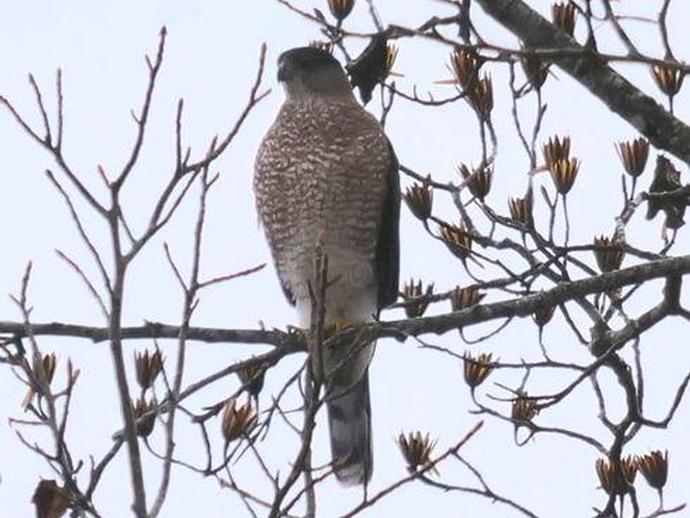December 14, 2021
It's time for today's edition of #BenInNature presented by our friends at Carter Bank & Trust!
The sharp-shinned hawk (Accipiter striatus) is one of the smallest hawks in the U.S. and Canada, and it's also one of the great conservation success stories. Back in the '60s and '70s, this species declined in numbers dramatically due to the use of DDT and other pesticides that caused the shells of their eggs to be too thin.
Fortunately, their numbers have rebounded since DDT was banned in 1972, and it's possible that there are more sharp-shinned hawks on the wing today than there were prior to the introduction of DDT. That's mainly due to our bird feeders providing them with easy hunting grounds, but still, good news for the hawks!
Sharp-shinned hawks have a wide distribution throughout North America, Central America, and South America, and they can be found year-round throughout most of Virginia. These hawks tend to be secretive and harder to spot than many other species, preferring to do much of their hunting in forests. They mostly feed on small birds, although they will rarely eat rodents, lizards, snakes, frogs, large insects, and even bats!
One unusual fact about sharp-shinned hawks is that they tend to pluck the feathers from their prey before eating it. Many raptors don't bother with this step -- owls, for example -- but sharp-shinned hawks are apparently picky eaters.
ABOUT #BenInNature
Social distancing can be difficult, but it presents a great opportunity to become reacquainted with nature. In this series of posts, Administrator of Science Ben Williams ventures outdoors to record a snapshot of the unique sights that can be found in the natural world. New updates are posted Monday - Friday, with previous posts highlighted on the weekends. This series of posts is made possible thanks to the support of VMNH Corporate Partner Carter Bank & Trust (www.cbtcares.com).
NATURE PHOTO IDENTIFICATIONS
If you discover something in nature that you would like help identifying, be sure to message us right here on Facebook with a picture (please include location and date of picture) and we'll have our experts help you identify it!

 Hours & Admissions
Hours & Admissions Directions
Directions

